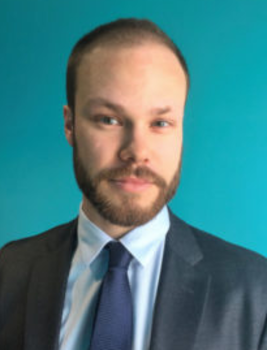Adrien Baudet
Expert in Social Impact Assessment

We allow organization to manage impact as a core dimension of their performance.
HEC Alumnus and holding a Ph.D on the subject of social impact assessment (SIA), Adrien has been supporting social enterprises, foundations and impact investors in their social innovation projects for several years.
He created a consulting and research agency specializing in SIA named KOREIS, where he carried out multiple social impact assessment projects – including sociological and ethnographical studies, Avoided Social Cost studies, and implementation of impact measurement systems - and contributed also to the implementation of Social Impact Bonds in France.
Author of several research papers, he also teaches at HEC Paris for the Inclusive and Social Business Certificate and the SASI Master. Basing on research and practical experiences alike his course covers theoretical issues (main definitions and concepts relating to social innovation), technical insights (main tools and methods for SIA) and practical feedbacks about the implementation and use of SIA tools among both Social Enterprises and larger companies.
He is an active member of several French initiatives supporting the development and structuration of Impact Assessment practices among Social Enterprises and Impact Driven organizations.
During this very special time of the Covid-19 crisis, we have asked him some questions about his activity, his vision about the future for a more inclusive economy.
At the time, when the most vulnerable people suffer the more, what—do you think—should become a priority for governments or companies (in France or around the world)?
I place great hope in the development of new forms of impact driven companies such as the French “Entreprises à Mission”. I am indeed convinced that the evolution of corporate status of companies will have profound repercussions, first on the decision-making processes and tools and then on actual effects of the activity and contribution of organizations to the tackling of social and environmental issues. The priority for governments – and also financial actors - should hence be to foster the structuration and development of these new organizational models.
What is the contribution of your activity to the creation of a more inclusive economy?
We will not grow impact-driven organizations without impact-centred management systems. Once a mission is defined in an organization, the very purpose of social impact assessment is to help this organization in the production of information about the effects and performance of their activity in response to the social and/or environmental challenges they choose to tackle. The contribution of SIA lies here: we allow organization to manage impact as a core dimension of their performance.
Through your career, what is the impact that you have tried to achieve thus far, the constraints that you have faced and the results that you can be proud of?
The overall impact I’d like to achieve in my career is to improve the management tools, technical expertise and legitimacy of impact-driven organizations. My first hope is hence that some of the impact assessment studies I conducted contributed to the development and improvement of the programs that were studied. Many of those organizations were highly innovative and impactful and I hope I provided them with useful tools. The main result I achieved so far might however lie in my teaching activities at HEC and in other institutions: being able to increase student knowledge about social innovation, hybrid business models and concrete impact assessment tools makes me feel useful. I’m sure many of them will join or create impact-driven organizations in the coming years, and I’m glad I can help prepare them for their journey.
Which advice would you give to HEC students, young entrepreneurs or intrapreneurs who would like to have an impact and participate to the refoundation of business?
There is no contradiction between being a manager and being an activist. Join impact-driven projects and apply business tools and approaches to their development. After a few years in the Social Business sector, I’m convinced that the core knowledge, core competencies and network you developed at HEC are highly valuable to this sector. Along with other higher education students, HEC students have a very specific role to play in the transformation of organizations. They must take it!
More about the Inclusive and Social Business Certificate?
More about the Master in Sustainability and Social Innovation?